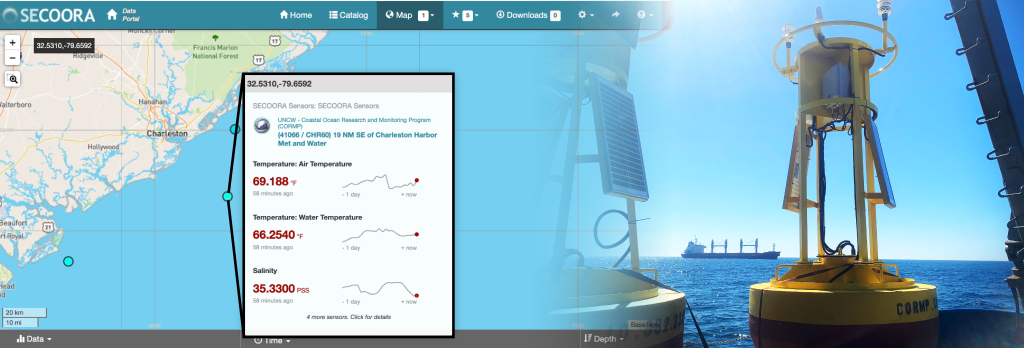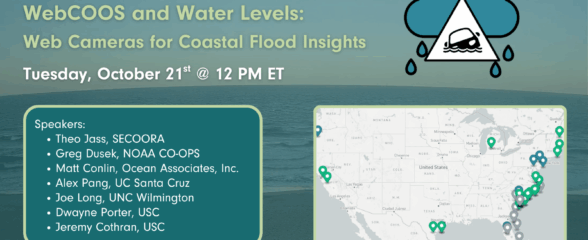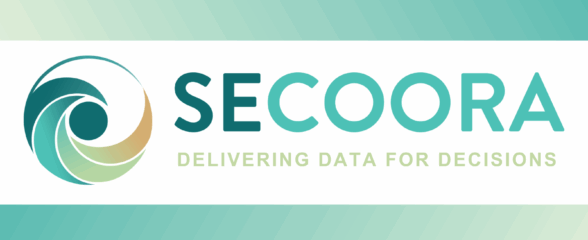
Two new buoys deployed near the entrance to the Port of Charleston are supporting ship operations and harbor pilots with much needed data. The buoys are maintained by UNCW Coastal Ocean Research and Monitoring Program and funded by IOOS and SECOORA.
Below is a list of data provided by the colocated buoys. Data is updated every hour.
- CHR60 (NDBC 41066): Wind speed, Wind gust, Wind from direction, Water temperature, Salinity, Air temperature, Air pressure, and Humidity
- GPS Location: 32°32.164’N, 079°39.355’W
- CHR60WAVE (NDBC 41076): Wave Height, Dominant Wave Period, Mean Wave Direction, and Water Temperature
- GPS location: 32°32.173’N, 079°39.531’W
Click here for CHR60 and CHR60WAVE data.
Partnerships to Fill Gaps
Ports, a major sector of the blue economy, rely on data provided by buoys. These new buoys are collecting valuable weather and sea state data for ships being moved into and out of the Charleston Harbor.
“The new buoys CHR60 and CHR60WAVE are already providing valuable weather and sea state data for ships transiting into and out of Charleston Harbor. This is important meteorological and oceanographic information to help aid in safe and efficient marine transportation.”
– Tom Boyle, Director, Vessel Operations, South Carolina Ports Authority
Utilizing Low Cost Technology
The team deployed a cost effective SOFAR Spotter buoy to collect the wave data needed by the Charleston Branch Pilots.
The ability to access user-friendly, low-cost technology remains a limiting factor in coastal ocean observing. Ocean observing equipment is difficult to deploy, costly to operate, and requires specific technical skills (doi10.12681/mms.25060).
Related news

SECOORA Webinar | WebCOOS and Water Levels: Web Cameras for Coastal Flood Insights
On October 21st at 12 PM ET, SECOORA is hosting a webinar with investigators from the Webcam Coastal Observation System (WebCOOS) project team and the WebCOOS Project Manager. Web cameras are a low-cost technology that can be used to document flooding impacts to coastal communities. Register here.

SECOORA Funding Opportunity Announcement: Letters of Intent Solicitation
SECOORA will submit a coordinated regional proposal in response to the anticipated FY 2026 Implementation of the U.S. Integrated Ocean Observing System (IOOS) funding opportunity. Letters of Intent to be considered for inclusion in SECOORA’s full proposal are due September 9, 2025.

SECOORA Hosts the First Surface Elevation Table (SET) Community of Practice Virtual Workshop
The SECOORA SET Workshop was virtual on July 17, 2025. More than 50 Community of Practice members and stakeholders joined this collaborative workshop to discuss SET monitoring, coastal resilience, and data-driven decision making in the Southeast.